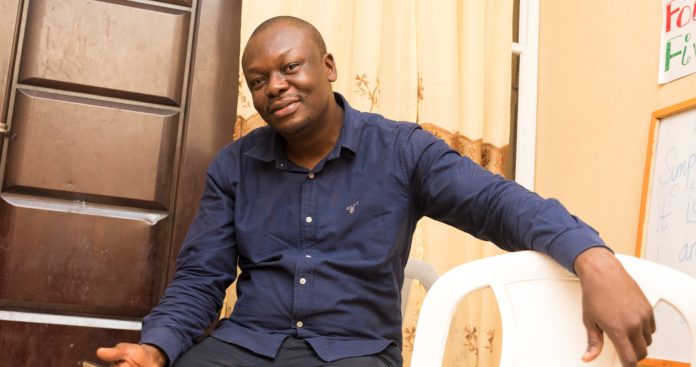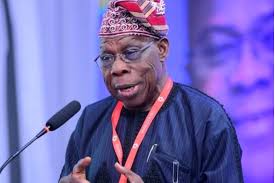Philip Jakpor reclines in his chair, his fingers drumming lightly on the wooden table inside his Lagos office.
”Lagos has an economy that is in billions of dollars annually, so Lagos has no basis to say there is no money to fund the water sector,” says Jakpor, 42, an activist who works with the Environmental Rights Action/Friends of the Earth Nigeria.
Since 2014, the cloud of privatisation has been hanging over the Lagos State water sector, a move the government said would increase water supply to Lagos’ more than 21 million residents.
Although the state government rakes in an average of N300 billion (about $9.8 million) annually in revenue – the highest in the country and nearly 40 per cent of the entire revenue by the 36 states – it has continually maintained that it cannot shoulder the water burden of the state alone.
In early 2015, the government unveiled a $3.5 billion master plan to increase potable water from 210 million gallons per day at the time to 745 mgd by 2020. The plan hinged on the introduction of a public-private partnership to inject fresh, private capital into the efficient management of government-owned assets in the water sector.
The plan came amidst protests by civil society activists and labour unionists who worry that water privatisation would price the ”free gift of nature” beyond the city’s ordinary people.
”When we say it is a free gift of nature, we are not saying that people cannot pay, people should be able to pay what is so reasonable that even the poorest of the poor can afford it,” says Jakpor.
Birthing a campaign
In 2014, and with the state government hell-bent on pushing through their privatization plans, ERA/FoEN launched the ‘Our water, Our Right’ campaign, a grassroots-heavy initiative that amplifies the voice of community people.
To strengthen the impact of their advocacy, ERA/FoEN solicited the support of other civil society groups, labour unions, community people, as well as international nongovernmental organisations.
The alliance with international groups was as strategic as it was an avenue to apply international pressure on Lagos government officials.
According to Jakpor, the international pressure ‘‘paid off bountifully.’’
First, 23 members of the U.S. Congressional Black Caucus issued a letter of solidarity to the ‘Our Water, Our Right’ campaign, linking the struggle against water privatization in Lagos to that of people in the U.S. cities of Flint and Detroit, Michigan, and Pittsburgh, Pennsylvania.
The support of the U.S. officials was quickly followed by a letter from the United Nations Rapporteur on the Human Rights to Water and Sanitation criticising the government for failing to provide adequate access to drinking water.
Locally, groups like the Joint Action Front, Nigerian Labour Congress, and the Amalgamated Union of Public Corporation Civil Service and Recreational Services Employees (AUPCTRE) joined ERA/FoEN in regular public protests across the city denouncing the water privatization moves.
‘’This whole battle is about economic dynamics,’’ says Achike Chude, vice chairman of Joint Action Front.
“It is about the attitude of some people to profit to the detriment of the rest of the people in the environment. That is what this whole thing is about.”
Privatisation or PPP
Lagos has two major waterworks at Iju and Adiyan, providing a combined supply of 115 Million Gallons Per Day for the over 20 million residents, according to information on LWC’s website.
Expansion of other waterworks – micro and mini waterworks – spread across the state has been ongoing for years, but provision of tap water is still limited to a minute fraction of the population.
The corporation says its current installed capacity is 210 million gallons per day, whereas the actual water demand in Lagos is 540 million gallons per day.
By year 2020, according to Shayo Holloway, the former managing director of the corporation, water demand is expected to be 733 million gallons per day, while the water production will be 745 million gallons per day.
“The need to bridge the gap has necessitated the involvement of the private sector by way of injecting more capital to improve efficiency of existing state-owned assets,” Holloway said in 2015.
The ‘Our Water, Our Right’ campaign largely forced Mr Holloway out of office in 2016. And in came Mumuni Badmus, another advocate for privatization.
Like his predecessor, Badmus has repeatedly championed the argument that a public-private partnership in the water sector is not the same as privatization.
Last year, the Badmus-led team began talks with three companies – Metito, Abengoa, and Veolia – months after the World Bank terminated talks with the Lagos State government.
While denying reports that the state had awarded contracts for the privatization of the water sector to the three companies, Badmus said the government was working towards a PPP and not outright withdrawal.
“Globally, attention is being shifted to the PPP arrangement to provide infrastructure for the people as government can no longer shoulder the responsibility alone,” he said.
A report by Transnational International Institute, Public Services International Research Unit, and the Multinational Observatory says that 180 cities in 35 countries, including Accra, La Paz, Kuala Lumpur, Paris, Berlin, Buenos Aires, and Johannesburg have ‘’re-municipalised’’ their water systems in the past ten years.
Opponents of the water privatization sector and PPP always point at other privatized government utilities such as the electricity sector where the switch did little to improve the sector; and hundreds of employees also lost their jobs.
Jakpor says in countries where privatization were done, the usual first move is to cut down the number of staff.
“The waterworks as we have them today are understaffed. By the time you allow these companies come in, you are also going to further remove people and throw them into unemployment.”
Government offensive
Since the launch of the ‘Our water, Our right’ campaign five years ago, more than a dozen street protests, press conferences, and legislative engagements with lawmakers have been spearheaded by ERA/FoEN in a bid to force the government to roll back its plans.
‘Water e no get enemy,’ a popular song by the Afrobeat legend, Fela, which translates to ‘water has no enemy’ is the unofficial anthem at the street protests where activists and community people march across Lagos streets chanting along as Fela belches the myriad usefulness of water.
But the advocacies have come at a price, as the government, in turn, launched an offensive aimed at bullying any opposition into silence.
In early 2016, a truckload of government security personnel stormed the quiet neighbourhood in Ikeja, the Lagos capital where ERA/FoEN’s office is located, and demanded to search the property.
Weeks later, Jakpor and his colleagues were summoned to the Lagos office of the State Security Service, Nigeria’s secret police, to explain what their campaign is all about.
“The aim is just to intimidate us,” Jakpor says.
“But over time, the authorities have known that this campaign has gone beyond ERA, it is now a movement with different segments of the society.
“So even if you stop ERA, will you be able to stop the labour unions? Will you be able to stop the grassroots communities who are marching? These are strategies for us that have worked. And if there is international solidarity, it means that what we are pursuing is a just cause.”
To counter the government’s claims that the campaigners are a bunch of people fixated on problems and not solutions, ERA/FoEN launched an advocacy document, ‘Lagos Water Crisis: Alternative Roadmap for Water Sector,’ in October 2016. The documents examined the roots of the water crisis in Lagos and suggested solutions, including a different type of PPP called Public-Public Partnership.
“We published another (document) detailing the failings of the companies the Lagos State government is planning to partner with, ‘Veolia, Abengoa, Metito cannot be trusted with Lagos Water.’ These are tools of engagement,” Jakpo says.
“So we don’t only engage on the streets, we also engage at the legislative level. We have written several times to the Lagos House of Assembly, we have written petitions, we have met their officials. It’s a multi-pronged approach.”
Outside Lagos, several states across Nigeria, including Bauchi, Ekiti, Bayelsa, and Imo have also begun considering adopting the privatisation or PPP model for the water sector.
In the oil-rich Delta State in southern Nigeria, some of the water facilities such as the laboratory and treatment plants had been concessioned to private firms.
Samuel Orovwuje, the national coordinator of the Foundation for Humanitarian Care for Displaced Persons in Nigeria, described the concessioning as a failure.
“The PPP arrangement in some social enterprise is not really the way to go,” said Mr Orovwuje, a Delta State native, who had researched extensively in the region.
“The Bretton Woods institution has always argued that privatisation is the best way to go but that has been punctured universally. So we need to bring that into the minds of our people, using advocacy, to see water as a human right. Re-municipalisation is the way to go.
In Plateau State, in Nigeria’s north-central region, the state governor, Simon Lalong, last June signed into law a water sector bill which provides for public-private partnership in the management of water resources in the state.
Jakpor says the Plateau governor’s move came despite a sustained advocacy by ERA/FoEN and other civil society groups against the bill would not be seen as a setback.
“It will not be seen as a failure of the campaign because the bill had reached an advanced stage before the knowledge of that plan came out of the open,” he says.
“But we are stepping up pressure that will make him revoke that signing, what has been signed can be unsigned. This is a movement that has come to stay.”
The story Lagosians fight to keep the water taps away from capitalism is one of twelve inspiring stories of local transformation shortlisted for the 2019 Transformative Cities People’s
Choice Award. Transformative cities is a global search for transformative practices and responses that are tackling global crises at a municipal level. You can still vote for the story that inspires you the most until the 9th of October at https://transformativecities.org/2019award/
For any questions about the Transformative Cities initiative they can
contact soltrumbovila@tni.org











![[UPDATED] Catholic priest arrested by police for alleged shooting, killing boy over New Year fireworks [UPDATED] Catholic priest](https://thenicheng.com/wp-content/uploads/2025/01/du-ty-100x70.png)


